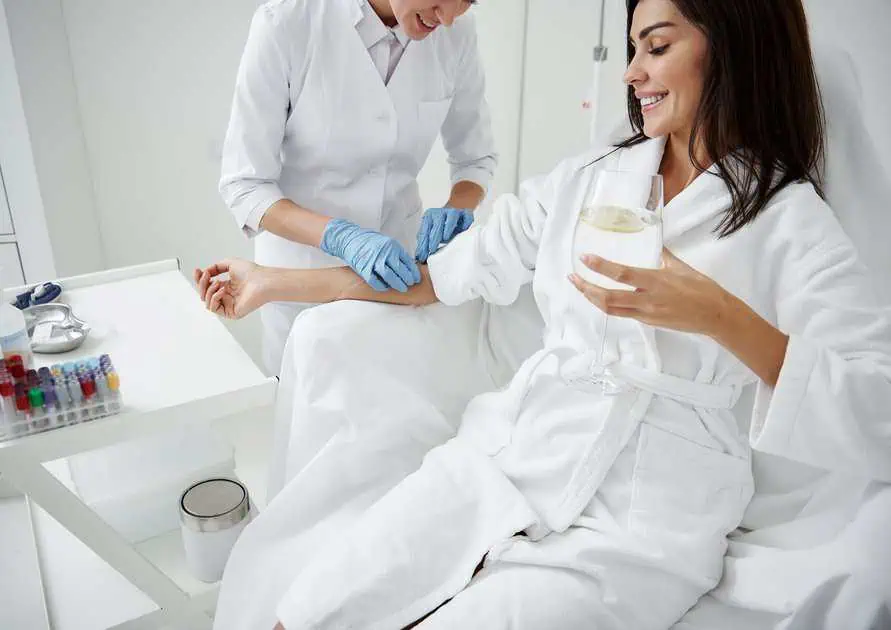Prioritizing health and well-being is critical in today’s modern world, yet many people struggle with the negative impacts of hormone imbalances, which can affect many factors, including mental state and metabolic processes. Traditional hormone replacement therapies, while effective, often carry the burden of unwanted side effects. However, a natural and efficient solution is gaining traction: Peptide Therapy, a rising star in health and wellness, offers a promising alternative for addressing hormone imbalances.
Understanding Hormone Imbalance
Hormones are chemical messengers that play crucial roles in regulating many of our body’s key functions, including metabolism, growth and development, mood, and sexual function, among others. When these hormones are balanced, our bodies function properly, promoting overall health and well-being.
However, factors such as aging, stress, unhealthy lifestyle choices, and certain medical conditions can disrupt this delicate balance, leading to hormone imbalances. These imbalances can cause a number of symptoms and health problems. For instance, too much or too little of a specific hormone can lead to weight gain or weight loss, mood swings, fatigue, sleep disturbances, and various other health complications.
Understanding hormone imbalance involves recognizing the signs and symptoms, identifying the underlying causes, and seeking appropriate treatment. It’s important to remember that these imbalances can occur at any age and can significantly impact one’s quality of life. Consequently, restoring and maintaining hormonal balance is crucial for overall health and wellness.
What is Peptide Therapy?
Peptide Therapy is a cutting-edge medical treatment that utilizes specific peptides – short chains of amino acids that act as signaling molecules within the body. These peptides bind to certain receptors on the cell surface and instruct other cells and molecules to perform specific functions. This ability to regulate and rejuvenate biological processes uniquely benefits peptides in medicine.
Peptides are naturally occurring in the body and play vital roles in numerous bodily functions, including hormone production, inflammation control, immune system response, tissue repair, and more. Peptide therapy takes advantage of these naturally occurring molecules to stimulate various physiological responses, such as boosting growth hormone production, suppressing inflammation, promoting weight loss, and even enhancing sexual function.
In essence, Peptide Therapy involves the use of specific peptides to trigger positive physiological responses and help treat various health conditions or improve overall health and well-being. The treatment is customizable, meaning specific peptides can be used to target individual patients’ needs, making it a promising and versatile approach in modern medicine.
Peptide Therapy for Hormone Optimization
Peptide therapy is an innovative and unique approach to hormone optimization. It differs significantly from traditional hormone replacement therapies, which directly introduce hormones into the body. Instead, peptide therapy uses specific peptides to stimulate the body’s own hormone production mechanisms.
Certain peptides, like Growth Hormone Releasing Peptides (GHRPs) and Growth Hormone Releasing Hormones (GHRHs), are known to stimulate the body’s production of growth hormone, an essential hormone that plays a role in body composition, cell repair, and metabolism, among other functions. By promoting the natural production of these hormones, peptide therapy helps the body maintain hormonal balance.
Importantly, since peptide therapy works by enhancing the body’s own processes rather than introducing external hormones, it tends to work in harmony with the body’s systems. This makes it a more natural and potentially safer approach to hormone optimization. Peptide therapy can be specifically tailored to the individual’s needs, allowing for a personalized approach to hormone optimization.
Benefits of Peptide Therapy for Hormone Optimization
The advantages of using peptide therapy for hormone optimization are manifold, offering a comprehensive solution to those struggling with hormonal imbalances.
- Enhanced Energy Levels: By optimizing hormone production, peptide therapy can help boost energy levels, leaving individuals feeling more vibrant and dynamic.
- Improved Mood: Hormones play a significant role in regulating mood. Peptide therapy can help balance mood-altering hormones, resulting in an overall improved emotional state.
- Better Sleep: Certain peptides can help regulate the sleep cycle, leading to improved sleep quality and duration.
- Optimized Metabolism: Peptides such as growth hormone-releasing peptides can enhance metabolism, potentially aiding in weight loss and promoting healthier body composition.
- Improved Skin Health: Some peptides promote collagen production and other skin-healing processes, leading to healthier, more youthful-looking skin.
- Increased Muscle Mass and Strength: Certain peptides are known to promote muscle growth and improve muscle strength, aiding those looking to enhance their physical performance.
By stimulating the body’s natural hormone production processes, peptide therapy offers a more balanced, holistic approach to health and well-being. However, it’s crucial to remember that the benefits can vary from individual to individual, and it’s always best to get professional medical advice before beginning any new medication.
Potential Sides Effects and Considerations
Like any medical treatment, peptide therapy is not without potential side effects or considerations. While peptides are generally well-tolerated and considered safe, some individuals might experience minor side effects. These can include:
- Injection site reactions: As peptide therapy is typically administered through injections, there can be reactions at the injection site, including redness, swelling, or discomfort.
- Flu-like symptoms: Some people might experience mild flu-like symptoms, including fever, fatigue, or headache, after peptide therapy.
- Increased hunger or water retention: Certain peptides can increase appetite or cause water retention, leading to slight weight gain.
- Changes in blood pressure or heart rate: While rare, some peptides can affect heart rate or blood pressure.
However, these side effects are usually temporary and subside as the body adjusts to the treatment. However, anyone considering peptide therapy should thoroughly discuss these potential side effects with their healthcare provider.
Similarly, although peptide therapy holds immense potential, it’s not a ‘one-size-fits-all’ solution. The treatment should be personalized based on individual health needs and under the guidance of a trained healthcare professional. Like any medical treatment, the potential benefits should always be weighed against possible risks and side effects.
The Bottom Line
Peptide therapy advances hormone optimization by restoring balance using the body’s natural processes. The Drip Lounge offers Peptide Therapy, an innovative and advanced medical science that utilizes distinct sequences of amino acids to boost various bodily functions. Furthermore, this advanced therapeutic approach presents an exciting frontier in optimizing the body’s core processes.







